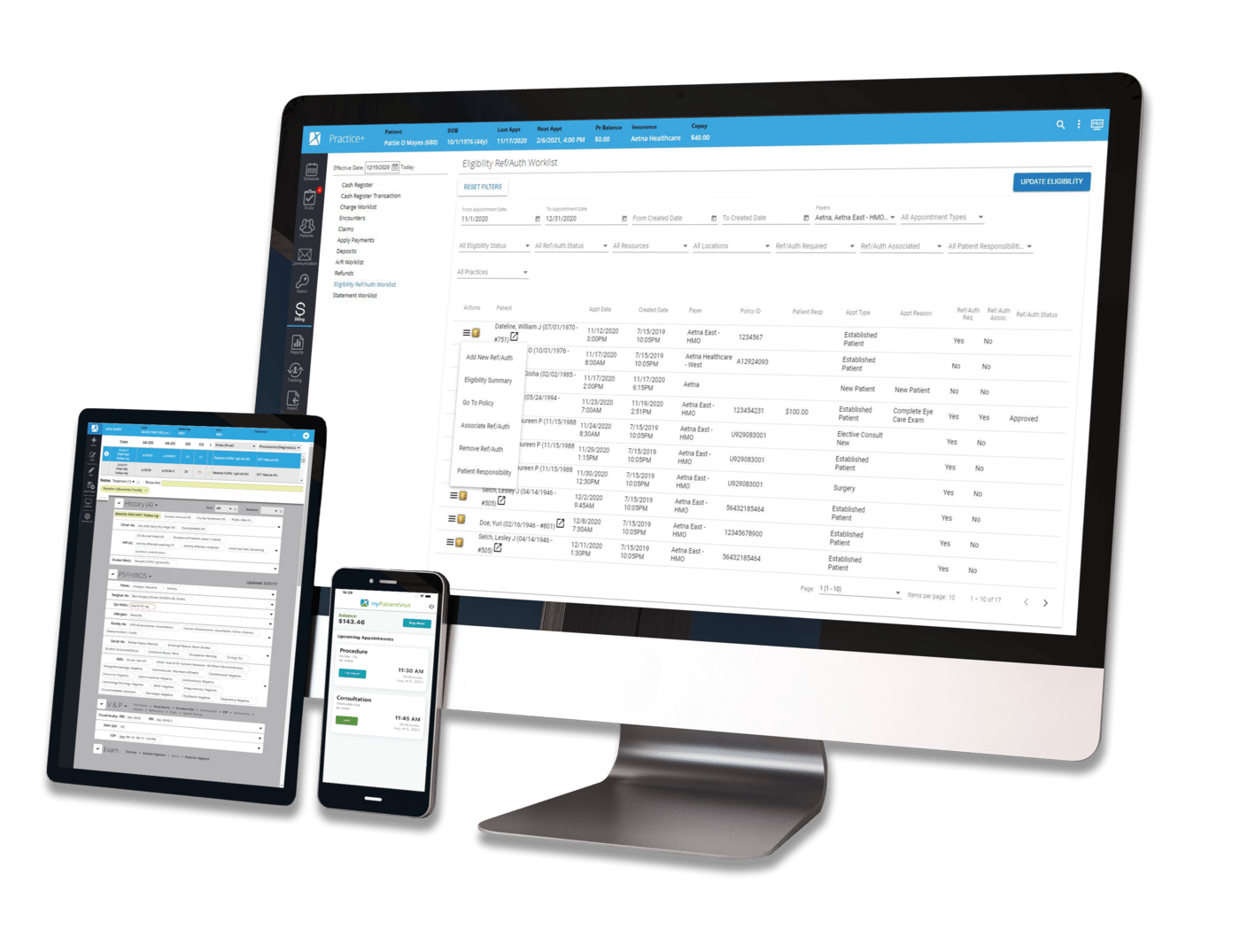Latest Articles
The latest news and information regarding electronic medical records, practice management software, HIPAA, and security from Nextech.

Regulatory & Compliance | Healthcare Technology
By:
Nextech
July 24th, 2020
In a recent blog, we discussed the new CMS proposed rules intended to make permanent many of the telehealth flexibilities initiated in response to the COVID-19 outbreak. Since that time, two additional and very significant pieces of telehealth legislation have been introduced. First, on July 16, 2020, a group of bipartisan lawmakers introduced the Protecting Access to Post-COVID-19 Telehealth Act to the U.S. House of Representatives. The very next day, July 17, Senators Ted Cruz (R-Texas) and Marsha Blackburn (R-Tennessee) introduced the Equal Access to Care Act to the U.S. Senate.

Regulatory & Compliance | cures act
By:
Nextech
July 17th, 2020
At the close of June 2020, the Centers for Medicare & Medicaid Services (CMS) released a new proposed rule that would make some of the recent flexibilities for telehealth permanent. Many of these changes are already in place, though temporarily for now, in response to the COVID-19 Public Health Emergency. If finalized, this rule would make several of these new telehealth flexibilities permanent. This blog will provide you with a summary of the proposed rule so that you can stay informed on what it could mean for you and your practice.


By:
Courtney Tesvich
June 15th, 2020
On June 9, 2020, the U.S. Department of Health and Human Services (HHS), through the Health Resources and Services Administration (HRSA), announced new redistributions from the Provider Relief Fund to eligible Medicaid and Children’s Health Insurance Program (CHIP) providers who participate in those programs. As a result, HHS plans to distribute approximately $15 billion to Medicaid and CHIP program participants who have not received a payment from the Provider Relief Fund General Allocation.

Regulatory & Compliance | Healthcare Technology
By:
Courtney Tesvich
May 22nd, 2020
The COVID-19 pandemic is becoming far more than just a public health crisis. The effects of the virus have proven to be long reaching, transforming one crisis into many. As businesses across the country were forced to close their doors during the initial outbreak, the country experienced a record surge in unemployment due to the resulting economic fallout. While the economic crisis has received much of the attention, there is a third crisis that has been less discussed—the litigation crisis—which has already begun and is predicted to last for several years.

Patient Engagement | Regulatory & Compliance | Healthcare Technology
By:
Nextech
May 15th, 2020
In a recent blog article, we took a close look at the future of telehealth in a post-COVID-19 world. While many would agree that telehealth is now here to stay and will continue to be an option expected by patients long after the pandemic has ended, the type of telehealth solutions providers choose to employ can have a serious impact on how patients respond. In the initial rush to provide patients with telehealth options, some providers implemented solutions that were riddled with security flaws, not to mention HIPAA noncompliant and unintegrated with their EHR and Practice Management.

Regulatory & Compliance | Financial Management
By:
Robin Ntoh
May 8th, 2020
The COVID-19 pandemic has impacted nearly every facet of our lives in recent months. We've all had to adapt to a new normal of social distancing measures and lockdown orders. Health insurance companies have not been immune to these changes and they too have had no choice but to evolve in this rapidly changing world. As restrictions are relaxed and practices return to business (though perhaps not business as usual), it is important for healthcare providers to be aware of how health insurance companies have been affected by this unprecedented event.

Regulatory & Compliance | Clinical Efficiency | Healthcare Technology
By:
Nextech
April 30th, 2020
In response to the COVID-19 outbreak, the majority of our country’s medical resources needed to be consolidated and redirected to treat the sudden flood of infected patients. In order to open up beds for overwhelmed facilities and minimize adding to the spread of infection, elective surgeries and procedures have been placed on hold for specialty practices for months. However, as certain states begin the process of reopening and lockdown restrictions are eased, many specialty practices will soon be resuming elective surgeries. In order to aid our readers in this effort, we are providing this blog to offer helpful tips on how to do so safely and responsibly.

Regulatory & Compliance | cures act
By:
Courtney Tesvich
April 23rd, 2020
For years, one of the biggest complaints that providers have had about the Promoting Interoperability program has been that they are unable to obtain direct messaging addresses for their coordinating providers. When I speak with practices, the number one reason I hear for why their Support Electronic Referral Loops by Sending Health Information and Support Electronic Referral Loops by Receiving and Incorporating Health Information measures are scoring low is that they cannot get others to exchange CCDAs with them because of this difficulty. CMS has heard this complaint but is still requiring that providers electronically exchange care coordination information. These two measures combined are worth 40% of a clinician or group’s total Promoting Interoperability score.